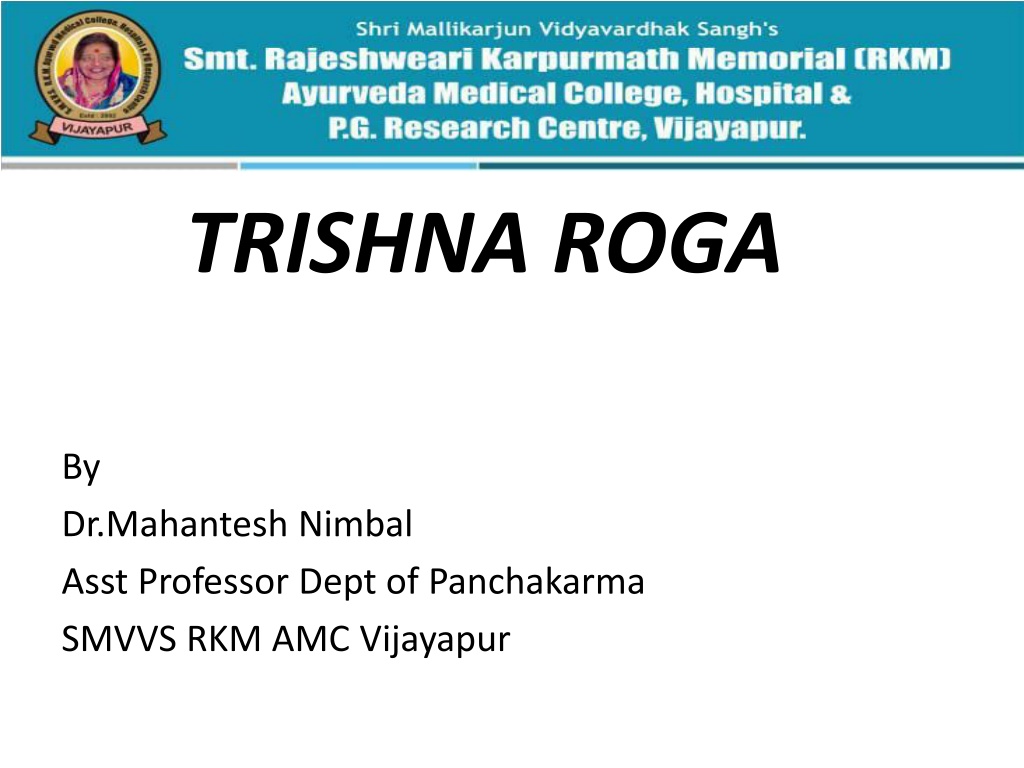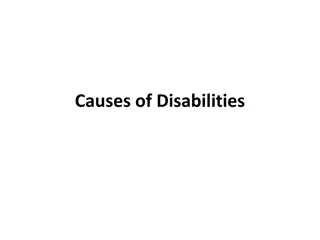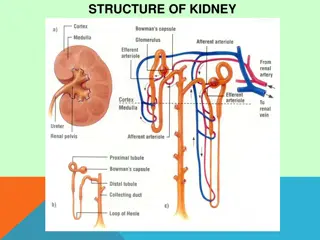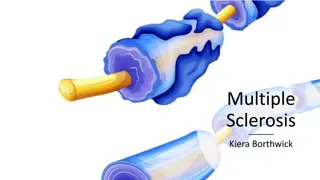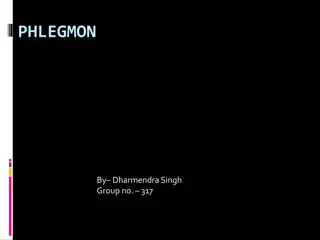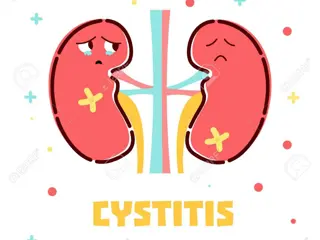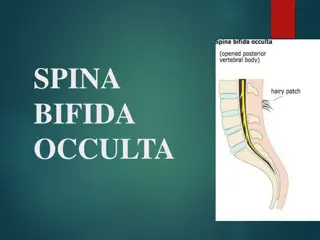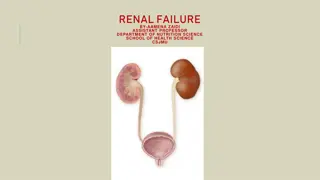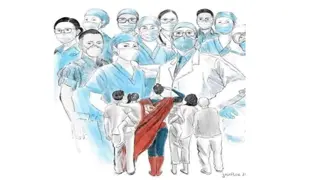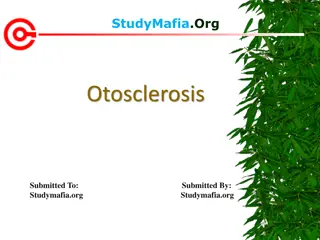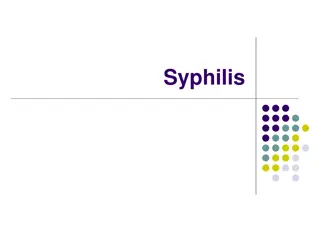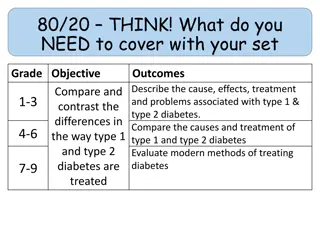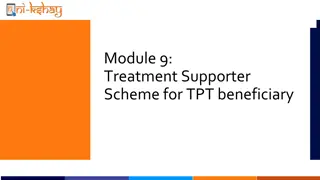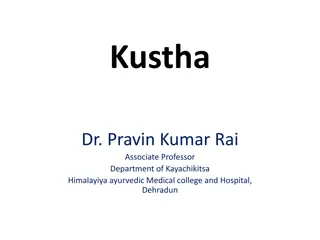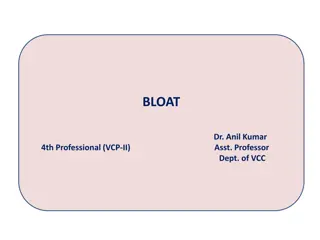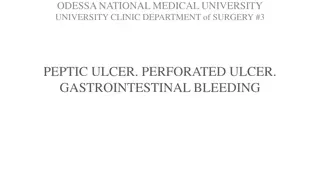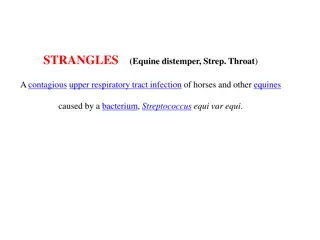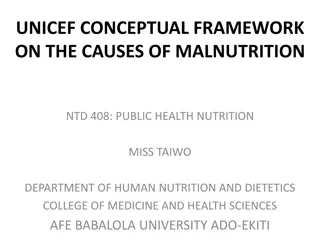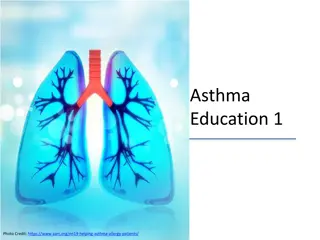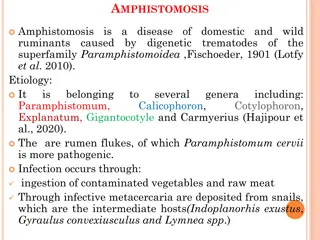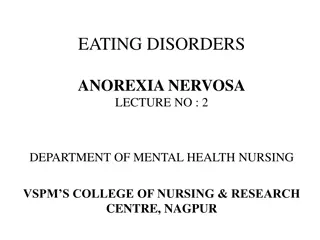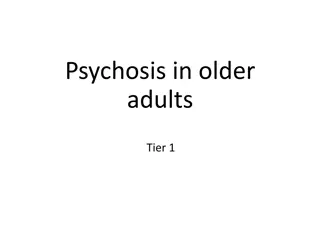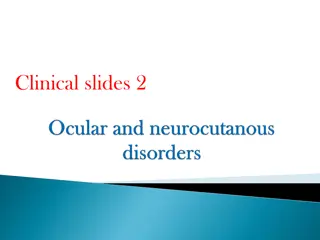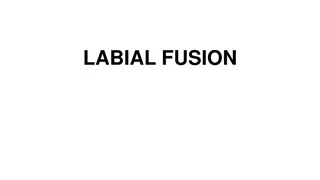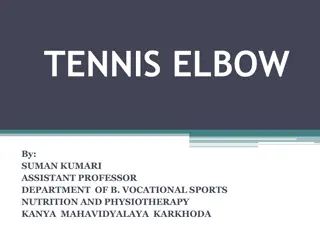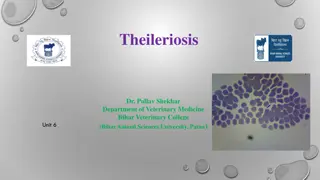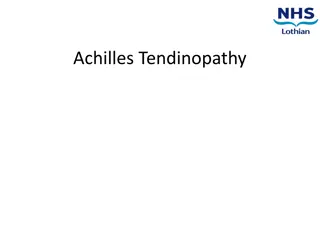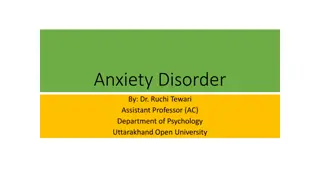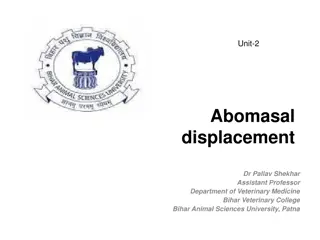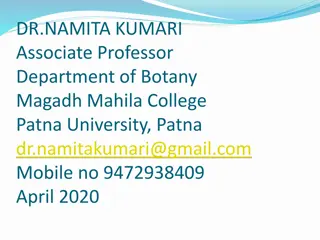Understanding Trishna Roga: Causes, Symptoms, and Treatment
Trishna Roga, or excessive thirst, is a condition characterized by a strong desire for water due to dehydration. It can be caused by factors like vomiting, diarrhea, and excessive sweating. This article discusses the etiology, symptoms, and traditional treatment methods of Trishna Roga as per Ayurveda.
Download Presentation

Please find below an Image/Link to download the presentation.
The content on the website is provided AS IS for your information and personal use only. It may not be sold, licensed, or shared on other websites without obtaining consent from the author. Download presentation by click this link. If you encounter any issues during the download, it is possible that the publisher has removed the file from their server.
E N D
Presentation Transcript
TRISHNA ROGA By Dr.Mahantesh Nimbal Asst Professor Dept of Panchakarma SMVVS RKM AMC Vijayapur
Even after drinking water if thirst is not quenched, it is called Trishna. It is a strong desire to drink water repeatedly, in other words it is marked thirst. Hence to compensate the loss, the body demands water. Modern medical science says that, the considerable decrease in the body fluid is nothing but dehydration. Trishna is also an important symptom of dehydration. At the same time the line of treatment followed in Trishna is also supportive to rehydration therapy
Body is formed by solids and liquids; the liquid part is more than 2\3 of whole body. In human being the total water varies from 60 - 65 % in normal young male adult, in female 50-55%. The total quantity of body water in an average human being weighing 70 Kg is about 40 liters. Definition: a strong desire to drink water. Inspite of drinking water repeatedly thirst is not quenched. This occurs due to enormous decrease of water content in the body. Definition of Dehydration - Significant decrease in water content of the body is called dehydration.
NIDANA Due to over dose of madana phala or any emetic drug administered during the process of vamana therapy causes Trishna. Because hyperemesis leads to decrease in the body fluid, and Trishna occurs due to dehydration. Severe vomiting leads to loss of body fluid. As a result of this dehydration leads to Trishna. Madhukosha opines that chhardi causes Trishna therefore; after the disease chhardi the chapter Trishna is followed. Severe atisara (diarrhea) leads to decrease in body water, sodium and electrolytes that cause dehydration hence Trishna occurs. Charaka opines that prameha is one of the cause of the Trishna. Especially in udakameha, madhumeha, hastimeha, there is increase urinary output. The reabsorption of water by the renal tubules is reduced, hence dehydration occurs with Trishna. Constant exposure to hot sun causes Trishna because excessive perspiration leads to heat frustration i.e. extreme loss body water, leading to dehydration and Trishna.
SAMPRAPTI The above said etiological factors aggravate vata and pitta dosha in the body that affects the channels of. In this context udaka, ambu and rasa are considered as water contents of the body. Charaka opines these watery elements as, and includes, under. Dalhana comments as the channels which carry water to tongue, throat, pharynx etc. In general the liquid contents of the body dries up and the channels which carry water to the tongue throat etc dries up. As a result loss of fluid or dehydration occurs in the body giving rise to signs and symptoms of dehydration. To compensate the fluid balance in the body patient drinks water repeatedly.
POORVAROOPA Dryness in the face, drawn face, shrunken eyes. Marked thirst. Dryness of the mouth, lips, pharynx. Burning senstion. Mental confusion Gidiness Delirium
SAMANYA LAKSHNA Dryness in the face, drawn face, shrunken eyes. It occurs due to loss of fluid in the body. This is the common symptom observed in all the types of Trishna. Dry and rough tongue, dry lips and mouth occur due to loss of body fluid which is observed in all the types of Trishna. Mental confusion, occurs due to severe dehydration. Protrusion of tongue. Gidiness Deafness. Burning sensation in the body. Delirium. Coma Cardiac symptoms are present. Hoarseness of voice. Anorexia.
Vataja Trishna Lakshana In vataja Trishna because of loss of body fluid, patient suffers from. Here shushka mukha is defined by dry face, drawn face and shrunken eyes. Besides these signs patient develops i.e. dryness of tongue and whole buckle cavity. Sleeplessness, giddiness, headache are also observed. Gradually loss of hearing and smell perception occurs. Due to dry tongue patient is unable to chew the food and feels tasteless.
Pittaja Trishna Lakshan The above said signs and symptoms are pertaining to pittaja Trishna. Thirst and dryness of tongue are common features observed in all varieties of Trishna. There are difference of opinion regarding yellow sclera which is observed in pittaja Trishna. Charka opines , and are observed in pittaja Trishna, whereas Sushruta considers only and Vagbhata says red sclera.
Kaphaja Trishna Lakshana Edema on extremities Heaviness in the body Vomiting Anorexia with indigestion Throat smeared with mucus Slimy feeling in the mouth Sweet taste Severe emaciation Sleepy Fever with rigors
Rasakshayaja Trishna The body water which is in the form of rasa dhatu nourishes all other dhatus of the body. If it is decreased the body water also get decreased. Therefore to compensate the fluid loss, there is severe demand for water that causes thirst. Besides Trishna other symptoms of rasa kshaya such as hrutpeeda, kampa, shoonya are also observed in the patient.
Oupasargika Trishna that means Trishna caused as a result of sequel to some disorders like prameha,atisara,chardi,jwara.swasa,kasa ,shosh etc. The chronic conditions of these above said diseases lead to Trishna
Madyaja Trishna An individual, who is in habit of drinking alcohol regularly, is affected with madyaja Trishna. As alcohol posses the properties of ushna, teekshna, rooksha etc, vata and pitta are aggravated. These two factors are capable of absorbing the body fluid and causing dehydration. The water contents of the body are dried up very quickly like that of water poured over hot sand. Thirst is relieved by drinking ice cooled water. Amaja Trishna Trishna caused due to ama is called amaja Trishna. This occurs due to vitiated pitta and ama, hence it is considered as Patient suffers from aruchi, adhmana and kapha praseka. Bhavaprakasha opines that amaja Trishna is caused due to vitiation of tridosha and produces the symptoms such as,
TRISHNA CHIKITSA Dalhana commenting on treatment of rasakshaya on Su.Su.15 says that, when doshas, dhatus and malas are decreased in the body, that should be treated by administration of the drugs which possess similar qualities and properties of respective dosha, dhatu and mala. Similarly water is replaced in the body when it is reduced.
With water honey and sugar is added and advised to take orally, the important point to be observed is that sugar is also replaced in the body along with water because, with the water sugar and electrolytes are also depleted in dehydration. There are number of drinks such as kwatha, paneeya, madhurodaka etc. that are recommended in Trishna in the form of ice cooled drinks). rain water is indicated in Trishna, shadanga paniya drink is instituted orally and encouraged to drink repeatedly from the beginning.
Vataja Trishna Chikitsa The drugs, ghrita, ksheera that are used in kshayaja kasa are also effective remedy in vataja Trishna. The kwatha is prepared with vidaryadiganadrugs and advised to take orally. Kwatha of laghu panchamoola or brihat panchamoola are recommended orally. Gudichi swarasa is administered orally. Diet Easily digestible food , soft cold is advised in vataja Trishna. Jaggary with milk or mamsarasa are advised as food. Pittaja Trishna Chikitsa Pakwodumbara phala swarasa with sugar, for oral administration, followed by mantha, payas and laja. Jalapaka is prepared with the drugs kashmari, chanadana, usheera, padmaka, draksha, madhuka, sugar is added and recommended orally. Sarivadi gana kwatha - Sugar candy and honey are mixed in the Sarivadi gana kwatha, advised orally in cooled condition. Utpaladi gana kwatha Sugar and honey are mixed in utpaladi gana or kakolyadi gana kwatha for oral administration. Ksheerapaka prepared out of jeevaneeya gana drugs and used for oral administration.
Kaphaja Trishna Chikitsa Vamana Mild vamana is induced by nimba kwatha. Yogaratnakara opines that kaphja Trishna should be treated on the line of treatment of kaphaja chardi). Naturally there will be Trishna in chardi. Hence mild vamana is induced. Honey and curds are administered for EiYs v l of kapha and then water mixed with saindhava is instituted to drink to induce vamana. Kwatha prepared with bilwa twak, adhakimoola, laghupanchamoola and dashamoola for oral administration. Dugdha, haridra, madhu and sharkara are mixed together for oral administration. Amaja Trishna Chikitsa Ama and pitta both are involved in amaja Trishna. Mrudu vamana is induced with hot water or dadhi mastu (Vagbhata) Bilwa and vacha are drugs of choice in amaja Trishna. Kashaya prepared with trikatu, vacha, bhallataka and tiktaka drugs is advised.
Madyaja Trishna Chikitsa Alcohol in madyaja Trishna Madya is mixed in equal quantity of water, dadima, saindhavalavana, gandhadyaha (jatiphala), are mixed in water, and advised orally.
